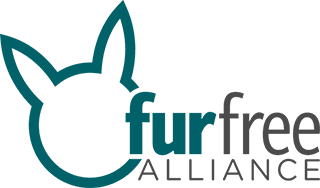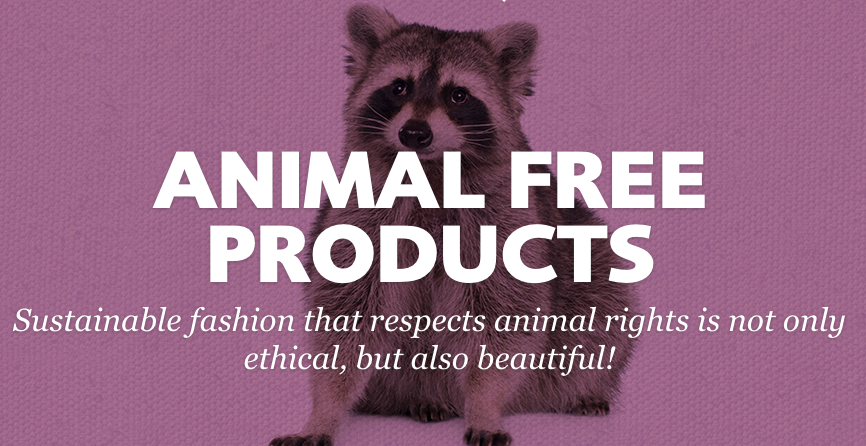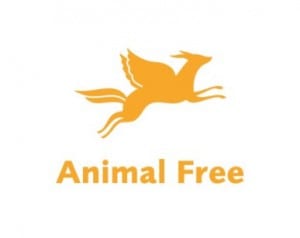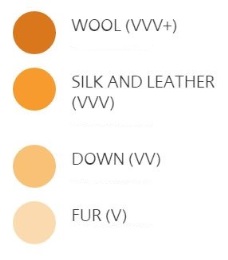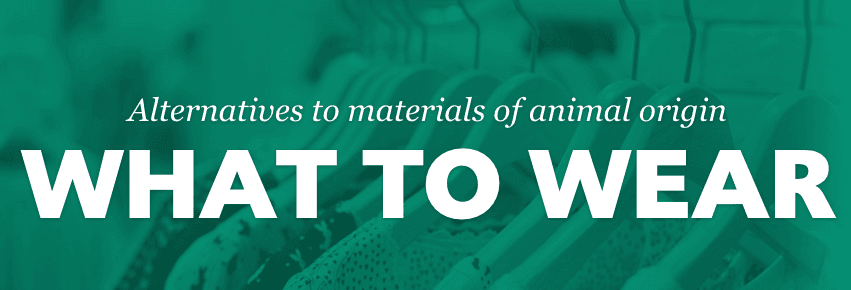
International survey: the future is ANIMAL FREE
ITALY, 25 FEBRUARY 2015 – ISPO research survey confirms: the future is Animal Free! The Italians and French (81.1%) stand out for choosing to purchase products free of materials of animal origin, followed by the Germans (80%), Dutch (79.1%), Polish (78%) and British (72.5%). On average 12% of consumers in the 6 EU countries are already buying Animal Free.
The opinion survey, commissioned by Italian Fur Free Alliance member organization LAV, measured the tendency of the sample to buy Animal Free clothing items, that is, those without fur, down, leather, silk and wool, in the six European countries and shows a noteworthy ethical sensitivity on the part of the Italians and French: 81.1% is the inclination of both towards buying fashion products free of materials of animal origin, followed by the Germans (80%), Dutch (79.1%), Polish (78%) and British (72.5%). Simone Pavesi, head of Ethical Fashion, states:
The ISPO revelation concretely demonstrates how ethical fashion is not merely a niche, rather it represents the demand of a considerable segment of consumers, embodying an enormous growth potential – – Fashion companies today have the great opportunity to orientate their commercial policies towards solutions that are ethically compatible, in which they can find the support of millions of consumers in the world who are already willing to buy Animal Free products.
LAV is launching Animal Free Fashion, a new web page presenting an ethical rating system that supports responsible and sustainable Animal Free Fashion. The website, available in English, Chinese, Russian, Italian, presents a great opportunity for companies engaging in ethical production.
Animal Free Fashion, the first ethics rating to endorse Animal Free Fashion companies, is divided into 4 levels: substitution of animal fur (Rating level: V); down (VV); silk and leather (VVV); wool (VVV+). The more that a company commits to not using animal materials, the higher the level of rating reached. Thus the rating becomes rewarding as all the companies that are evaluated will have at least reached a “without fur” company politic.
ISPO Research asked a sample of 3,600 consumers about their:
- awareness of the existence of alternative materials for those of animal origin;
- tendency to buy once informed;
- actual attitude towards the shopping experience.
From the combination of the certain tendency index to the purchase of Animal Free products and the actual attitude index, it was then possible to quantify the actual effective purchase behavior of Animal Free products.
- Awareness:
Together with the United Kingdom and Poland, Italy is the country with the highest percentage of consumers fully aware (20-21%) of the existence of alternative materials for those of animal origin.
Italians are aware of the existence of vegetable or artificial alternatives for fur (80% of those interviewed), leather (76%) and down (55%); the same response in the other EU countries, but with slightly lower percentages.
- Tendency to buy Animal Free products:
very high (78.6% average in the six EU countries) is the tendency to buy “Animal Free” products if consumers receive basic information about the negative aspects typical in animal production (in terms of impact on the well-being of the animal, environmental impact). In all countries the insertion of fur has been identified as the top of the list that can be substituted by alternative materials, immediately followed by silk used for ties, shirts and undergarments.
For six types of products (coats or jackets with fur inserts; shirts, ties and undergarments in silk; ski jackets in down; purses, belts, wallets in leather; coats, sweaters, winter clothes in wool; leather footwear), the study verified that buyers were willing to buy, with equal comfort, those realized with alternative materials rather than animal, with the following responses: for Italy, 85% of those interviewed chose collars with alternative fur inserts, 83% ski jackets with down alternatives as for products without silk, 80% said no to leather in purses and accessories, and 78% could easily give up winter clothes in wool and the same percentage was in favor of footwear with leather alternatives.
Considering only the percentage of those who showed a more marked tendency towards buying alternative materials — declaring that they “certainly” prefer Animal Free products — we find buyer percentages between 40-50% in Italy, the Netherlands, France, Germany for fur, silk, down, wool. This percentage decreases a bit in the case of leather. Instead the UK and Poland are the countries with a lower buying tendency, that hardly rises above 38% for all materials.
Overall, Italy and France show a marked tendency to buy “Animal Free” materials with 35% of the population. Poland is at the tail end.
- Actual attitude towards the shopping experience:
the sample of 3,600 interviewees were then asked their degree of agreement with affirmations, thus their actual attitude towards the shopping experience, without informative conditioning, once put in front of relevant situations:
- comfort (opinion on the preference of clothing products and footwear in leather or imitation leather);
- marketing (“When I read the lining has “REAL DOWN”, I think it’s only marketing and it’s not really a quality product”);
- availability of the product (“If it becomes DIFFICULT TO FIND articles of clothing with alternative materials, I will certainly buy those with materials of animal origin”);
- taste (“If I LIKE the article of clothing VERY MUCH,I don’t have any problems and I will buy it with materials of ANIMAL origin”);
- trend (“Today using alternative materials instead of real leather or real fur IS TRENDY, it’s cool”);
- health (“The components of animal fur used as decorations for jackets and coats can contain POISONOUS CHEMICAL SUBSTANCES in concentrations dangerous for health”);
- ethics (“INSTEAD OF buying an article of clothing with materials of animal origin, CHANGE STORES OR BRANDS”).
In all countries those interviewed had faith in the level of comfort found in materials of vegetable or synthetic origin, both for footwear (68% of Italians with an average of 56.5% in the 6 EU countries) and even more with clothing (76% of Italians with an average of 65.8% in the 6 EU countries).
At least 40% of Italians (48% Poland, 40% United Kingdom, 35% Netherlands, 27% Germany, 23% France) believe that the definition “real down” is a marketing strategy and do not necessarily believe that a down product is better than one of synthetic material.
In Italy as in the other countries, consumers would not be tempted to buy animal materials if it were difficult to find an alternative in vegetable or synthetic fiber: only 7% of the consumers in the Netherlands, 8% in Germany and France, 9% Italy, 11% United Kingdom and 13% Poland would give in to the lack of availability of “Animal Free” products.
Most consumers (especially in Italy 62%, the Netherlands 56%, Germany 52%) would not give in to the “personal taste” factor and would not buy articles with animal products, even if they like them.
In general, alternative materials derived from vegetable or synthetic fiber are considered trendy, cool.
Health risks linked to the possible presence of toxic residues derived from preserving animal fur are a discouragement from buying products with animal fur inserts for 51% of those interviewed in Italy: this greater awareness of Italian consumers with respect to their European counterparts can be traced to the results of the two Toxic Fur investigations conducted by LAV in 2013 and 2014.
Ethics are a key value in the buying process: in Italy (59%), Germany (54%) and France (53%) the lack of “Animal Free” products offered could influence most consumers to change stores or brands.
Overall, Italy is the country with the highest Animal Free attitude (30%), followed by Germany (25%), France (21%), the Netherlands (20%), the United Kingdom (18%) and lastly, Poland (15%).
As with the tendency towards buying, oftentimes women are more Animal Free with respect to men.
The effective buying behavior: contextually considering a certain tendency towards buying and an Animal Free attitude, that is the two conditions that most easily indicate effective buying behavior, results in a percentage of convinced consumers once it comes to alternative materials with 17% in Italy, 14% Germany, 13% France, 10% United Kingdom and the Netherlands, 7% Poland (with an average of 12% in the six countries).
